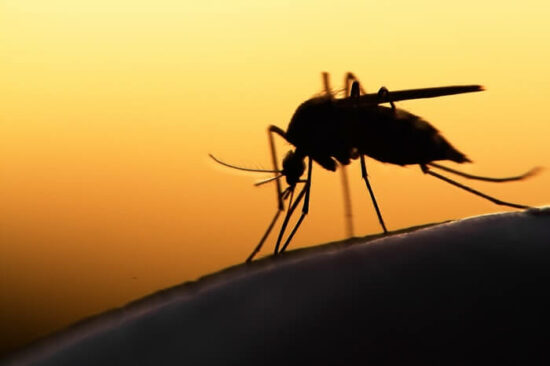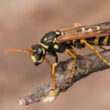There are quite a lot of misconceptions on the topics of mosquitoes being attracted to light. Some say these insects are, and others say they aren’t.
And both sides of the argument are absolutely convinced they’re correct.
So which is it?
This guide will set the record straight.
Table of contents
Are Mosquitoes Attracted To Light?
Mosquitoes are one of the most reviled backyard pests to exist! They have a knack for crashing outdoor parties and putting a damper on the fun with their itch-inducing bites. Because they’re such a nuisance, you’ve likely heard of hundreds of mosquito-repelling techniques.
One misconception about mosquitoes that continues to prevail is their attraction to light. We hate to burst your bubble, but those old wives’ tales are not based on reality.
Mosquitoes are not attracted to light.
This bug has an interesting and often misunderstood relationship with light. Contrary to popular belief, it’s not your porch lights or outdoor decorative lights that are drawing these bugs in.
Bugs don’t view light in the same way that we humans do. As a result, they take advantage of light much differently.
Have you ever wondered why mosquitoes seem to pop up in the early morning and late evenings? That precise scheduling is not by chance. Mosquitoes are most active when the sun is low.
During the day, these flying bugs avoid light as much as they can. They rest and stay quiet in shady areas to avoid excessive exposure, leading to dehydration and quick death. As the sun dips below the horizon, mosquitoes are safe to come out in full force!
Quick Tip: While technically crepuscular, mosquitoes behave similarly to nocturnal insects. They use natural forms of light to navigate their surroundings.
Mosquitoes take advantage of the light coming from the moon and stars to navigate from point A to point B. They angle their bodies in a specific orientation based on the guiding light’s position. From there, they can safely use that subtle illumination to fly to safety.
So, how does artificial lighting come into the mix? Well, it tends to throw mosquitoes off their intended flight path! The pests can use your outdoor lights for navigation, too. But in many cases, they serve as nothing more than an accidental distraction.
If you ever see these insects flying suspiciously close, it’s not because mosquitoes are attracted to lights. There’s a good chance that the light is actually disorienting the insect, causing the bug to fly in a direction they didn’t mean to go.
Are Mosquitoes Attracted To UV Light?
Most people are vaguely familiar with UV-powered bug zappers. They become available during the summertime and often line shelves of big-box stores across the world.
They work by emitting a UV light that seemingly attracts bugs to the device’s center. Once there, they are electrocuted and die instantly.
With how popular and effective bug zapper lights are, most people assume that mosquitoes are attracted to UV light. But not so fast! They don’t work in the way that most think.
Believe it or not, biting mosquitoes aren’t attracted to UV light any more than other forms of light (natural or otherwise).
So, what bugs are getting zapped by your beloved pest-killing device? In many instances, those popping sounds of electrocuted insects aren’t biting mosquitoes at all. They’re usually midges and other related flying bugs.
Alternatively, they could be male mosquitoes. Unfortunately, those aren’t the ones you’re trying to kill.
You see, male mosquitoes don’t bite and feed on blood. They exclusively eat plant juices and natural sugars to survive. Despite the physical similarities, male mosquitoes are very different from their female counterparts.
Females are the nuisance bloodsuckers! They actively seek blood to gain strength and develop eggs. Those irritating bites are just one stop in a female’s constant journey to laying eggs. Males, on the other hand, are just focused on survival!
It’s thought that males do have some reaction to light. However, their attraction is more towards the heat it produces. UV light generates warmth, which is what these pests need to survive.
Quick Tip: When you turn on a bug zapper, the heat coming from the UV lamp can draw male mosquitoes towards their death. However, the biting female mosquitoes aren’t attracted to UV light in any way. They certainly sense them and can utilize the UV rays for guidance, but mosquitoes aren’t attracted to UV light like many people seem to believe.
Are Mosquitoes Attracted To Blue Light?
Here’s another color-related myth you might have heard. Some say that replacing your porch lights with red or yellow-tinted lights will keep mosquitoes at bay. They believe that anything with a blue tinge, such as LED bulbs, draws mosquitoes close. Is there any truth to that?
Unfortunately, this is another misconception. Mosquitoes aren’t attracted to blue light.
However, there is a little bit of twisted truth here.
As mentioned earlier, mosquitoes see lights and colors very differently from humans and animals. Comparatively speaking, mosquitoes have a much narrower visible spectrum. There are only a few color ranges available to them.
The narrow wavelength band of light mosquitoes can detect is limited towards the violet-blue side of things. The exact range is unknown, but scientists believe it’s between green and violet-blue. Everything outside of that range, such as reds and yellows, is undetectable!
Mosquitoes can see blue light, but does that mean that they’re naturally drawn to it? Not necessarily.
These flying pests might be inclined to go towards blue lights, but that’s likely more to do with navigation than anything else. Because they can see it, mosquitoes will use blue-tinted lights for navigation just like they’d use the moon and stars.
Quick Tip: Even if mosquitoes aren’t attracted to blue lights in the traditional sense, it’s still a good idea to avoid having them around your yard. Stick to warm tones and colors that fall outside of the bug’s visible spectrum. It’s better to have fewer navigation-ready lights for these bloodsuckers to take advantage of.
What Color Light Attracts Mosquitoes?
There’s some evidence that mosquitoes might be attracted to color lights such as blue, green, and violet. But again, that’s mostly down to pure visibility rather than natural attraction.
The truth is that mosquitoes don’t gravitate towards any form or color of light they encounter. They use natural forms of light to travel and create a distinct flight path. However, they’re not attracted to any kind of light in the way that most people think.
In reality, mosquitoes try to avoid natural light.
These blood-hungry insects use other ways to hunt for hosts. What actually attracts mosquitoes most is carbon dioxide and body heat.
Carbon dioxide creates the biggest draw. We produce the gas every time we exhale. There’s no way to control it, as our breathing makes a constant flow as we live our lives.
Mosquitoes view carbon dioxide as a marker for human bodies. Because they want your blood, it’s an easy target for hunting. Other respiring animals produce the gas, too. That’s why they’ll also feed on cattle, pets, and other creatures.
Body warmth and odor come into play as well. Though, the importance of these factors comes second to carbon dioxide detection.
When it comes to body warmth, mosquitoes can find you in most environments. These bugs are so sensitive to temperature that they reportedly detect changes as minor as a few hundredths of a degree. Needless to say, they can spot your body no matter how cool and comfortable you are!
Ultimately, mosquitoes don’t rely on color to hunt for food or make their way around the environment. Different kinds of light can help them navigate or cause disorientation. However, mosquitoes aren’t attracted to any specific light colors.
Can You Use Certain Light To Repel Them?
Unfortunately, there’s no end-all-be-all lighting technique to keep mosquitoes away. Their reaction to different colors isn’t extreme enough to drive them away.
That said, some techniques might provide minor results.
One thing you can do is try that red and yellow lighting method we talked about earlier. While red and yellow lights don’t actively repel mosquitoes, they may make your outdoor fixtures invisible to these pests.
Quick Tip: Remember, they can’t see lights in that color spectrum. In turn, the flying bug is unable to use it for navigation. That doesn’t mean they will actively avoid the area with red or yellow lights. Nor does it guarantee that you’ll have fewer bugs at all!
However, it doesn’t hurt to try. Mosquitoes aren’t going to venture to areas they can’t see or safely navigate through.
Another tip worth trying out pertains to your clothing rather than direct lighting. Theoretically, light-colored clothes will make you less attractive to mosquitoes.
Dark colors absorb heat, which only raises your body temperature even further than it already is. Stick to lighter shades for those summer backyard gatherings. The temperature difference might be indistinguishable to you, but sensitive mosquitoes might treat you as less of a priority.
There’s no proven way to use light as a mosquito repellant. However, these tips may make you less of a target for these annoying bloodsuckers!
Conclusion
As you can see, mosquitoes aren’t attracted to light. However, they might behave differently around certain kinds of light.
We hope you found this guide helpful and use the information to help you invest in more effective forms of mosquito control in the future! If you have any questions, we’re always happy to help.


